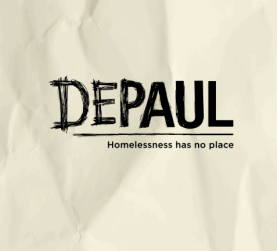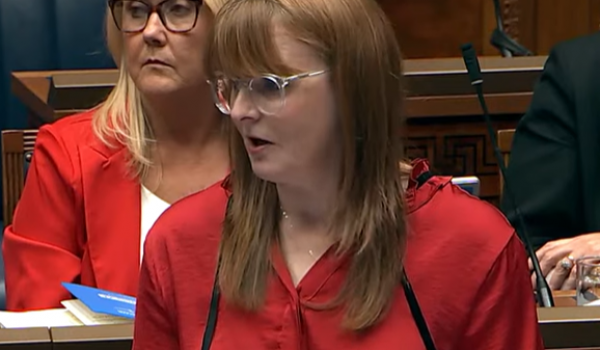
The cross-border homelessness charity Depaul says it is facing major challenges, particularly in the low threshold harm-reduction service based in the North West.
Research shows more drug-related addictions and significant increases in mental health complexities.

The Foyle Haven service, which is part of the service, has seen user visits increase year on year. Last year, the centre saw 11,404 user visits, almost double that of 2022.
The service is funded by the Public Health Agency, but DePaul spokesperson Deirdre Canavan says while the challenges the service face are becoming ever more complex, their funding model hasn’t changed, and that’s not sustainable…….
Release in full –
Depaul NI report finds Homelessness landscape shifting as demand for services soars
- Year on year increase in demand over the decade – almost 100% increase from 2022 to 2023
- Data points to increasing complexity of mental health issues
- Report highlights changing nature of addiction with more polysubstance addiction (drugs and alcohol) issues presenting
- More women, families and a younger demographic witnessed
Derry, 5th September, 2024 – Leading cross-border homelessness charity Depaul has released the findings of research commissioned to look at the changing landscape of homelessness and its interaction with substance use in the last 10 years – particularly experienced in the Public Health Agency (PHA) funded low threshold harm-reduction service based in the North West. The findings show growing challenges including more drug-related addictions and significant increases in mental health complexities. The findings provide strong evidence for the increasing need for services, while also showcasing realistic concerns around the importance of being able to sustain vital services in light of potential threats to funding.
The report was undertaken to mark the ten-year anniversary of the running of services in the North-West by a consortium led by Depaul, working alongside Arc Solace and First Housing, funded by the Public Health Agency (PHA). The Foyle Haven service, which is part of the consortium, has seen user visits increase year on year during the decade increasing significantly – in 2023 the centre saw 11,404 user visits, almost double that of the previous year.
Among other aspects the report recognises changes in demographic shifts witnessed amongst service users, as well as the nature of their substance misuse, progressing from alcohol towards greater usage of drugs, particularly, cocaine. More women and families are receiving low threshold services and benefits are being felt more than ever across the wider community.
The research also identified that a key strength of the Depaul Consortium service provision was the widely accepted perception that the intervention and service provision was alleviating burden – practically and financially on the Health Service. The data indicates a reduction in the number of crisis interventions – through first response e.g. naloxone administration, relieving pressure on ambulance services and A&E. In 2023, staff administered 135 doses of Naloxone. The report outlines a clear ripple effect from the services evidenced in the wider community.
Commenting on the research David Carroll, Chief Executive of Depaul, said: “This research gives real insights into the changing landscape of homelessness in Northern Ireland – showcasing the increasingly complex needs of service users and the continual need for our services to morph and adapt over those years. It also shows how successful partnerships like this can really make an impact on the lives of service users, and highlights the importance of interagency collaboration which results in direct savings for public services.”
He added: “The findings support the need for vigilance around threats to the sustainability of these services. Depaul is deeply concerned at the devastating and grave impact that the proposed budget cuts will have on homeless support services. We are extremely concerned that any cut to funding will lead directly to increased rates of overdosing and ultimately increased deaths amongst the group of individuals who use the service on a daily basis.”
The research also considers the learning in the context of the ongoing needs of service users in the Northwest over the coming three to five years. A key feature of which is recognising the changing landscape, continued funding and focus on mental health issues and the changing demographic.
The full report is available here





